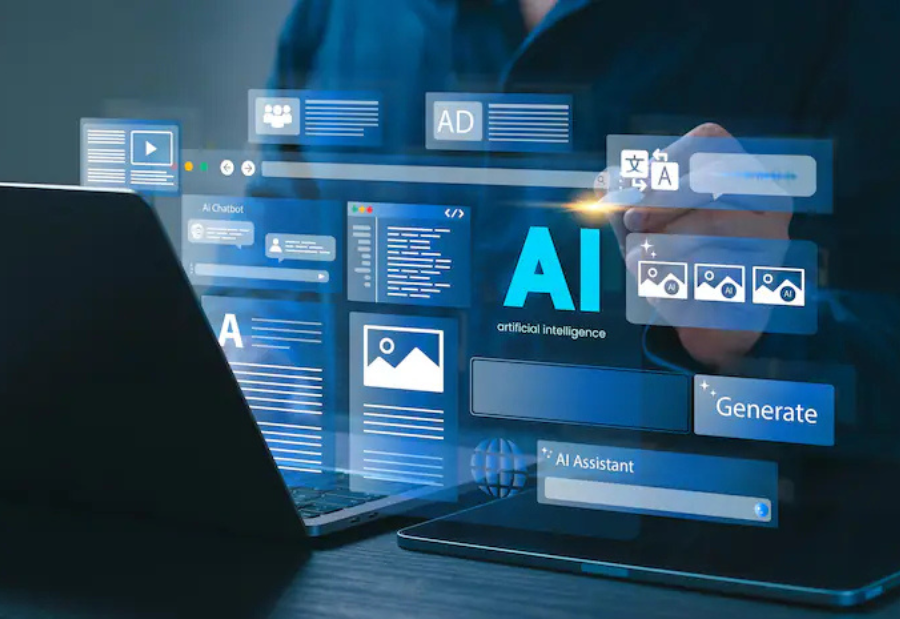
How Artificial Intelligence will change Businesses moving into 2025?
Posted On January 15, 2025
Share this article:
Artificial Intelligence (AI) is poised to transform businesses in numerous ways in 2025. Here are the key areas where AI is expected to drive change:
- Automation and Efficiency
- Process Automation: AI-powered automation tools will streamline repetitive tasks, reduce human error, and improve operational efficiency. This includes robotic process automation (RPA) for back-office functions like accounting, payroll, and data entry.
- Supply Chain Optimization: AI will enhance demand forecasting, inventory management, and logistics, reducing waste and improving responsiveness.
- Enhanced Decision-Making
- Data-Driven Insights: Advanced analytics and AI algorithms will process large datasets in real-time, enabling businesses to make faster and more accurate decisions.
- Predictive Analytics: AI will help predict trends, customer behavior, and market shifts, providing a competitive edge.
- Personalized Customer Experiences
- Customer Service: AI chatbots and virtual assistants will deliver 24/7 support, reducing response times and improving customer satisfaction.
- Personalization: AI algorithms will analyze customer data to offer tailored recommendations, promotions, and product offerings.
- New Business Models
- AI-Driven Products and Services: Companies will increasingly monetize AI by embedding it into their offerings, such as smart devices, autonomous systems, and intelligent platforms.
- Subscription Models: AI-enabled platforms will facilitate scalable, subscription-based services in industries like healthcare, software, and education.
- Workforce Transformation
- Upskilling and Reskilling: The integration of AI will demand a workforce skilled in technology, data science, and AI management, leading to significant investment in employee training.
- Redefinition of Roles: While AI will automate certain jobs, it will also create new roles focusing on AI management, strategy, and ethics.
- Improved Marketing and Sales
- Targeted Advertising: AI will enhance ad targeting by analyzing consumer behavior and preferences in real-time.
- Sales Enablement: Predictive sales tools will help sales teams focus on high-potential leads and optimize pricing strategies.
- Risk Management and Security
- Fraud Detection: AI will improve fraud detection and prevention in industries like banking and e-commerce.
- Cybersecurity: Advanced AI systems will proactively identify and respond to cyber threats, enhancing data protection.
- Sustainability Initiatives
- Energy Efficiency: AI will help businesses optimize energy usage and reduce their carbon footprint.
- Circular Economy: AI-driven insights will facilitate waste reduction and sustainable product design.
- Collaboration and Creativity
- AI-Augmented Creativity: AI tools will assist in content creation, design, and innovation, allowing businesses to experiment and iterate more quickly.
- Collaborative Tools: AI will improve team collaboration by providing real-time insights and automating routine project management tasks.
Challenges to Address
- Ethical Considerations: Transparency, fairness, and bias in AI algorithms will remain critical concerns.
- Regulation and Compliance: Governments will likely introduce new AI usage regulations, requiring businesses to stay compliant.
- Integration Costs: Adopting AI solutions will require significant upfront investment in technology and infrastructure.
Key Industries Impacted
- Healthcare: AI will revolutionize diagnostics, patient care, and drug discovery.
- Retail: Personalized shopping experiences and inventory management will be transformed.
- Finance: Risk management, customer service, and fraud prevention will see significant improvements.
- Manufacturing: Predictive maintenance and AI-driven robotics will enhance productivity.
As businesses continue to adopt AI, those that strategically integrate AI into their operations and adapt to the evolving landscape will be best positioned to thrive in 2025 and beyond.
Share this article: